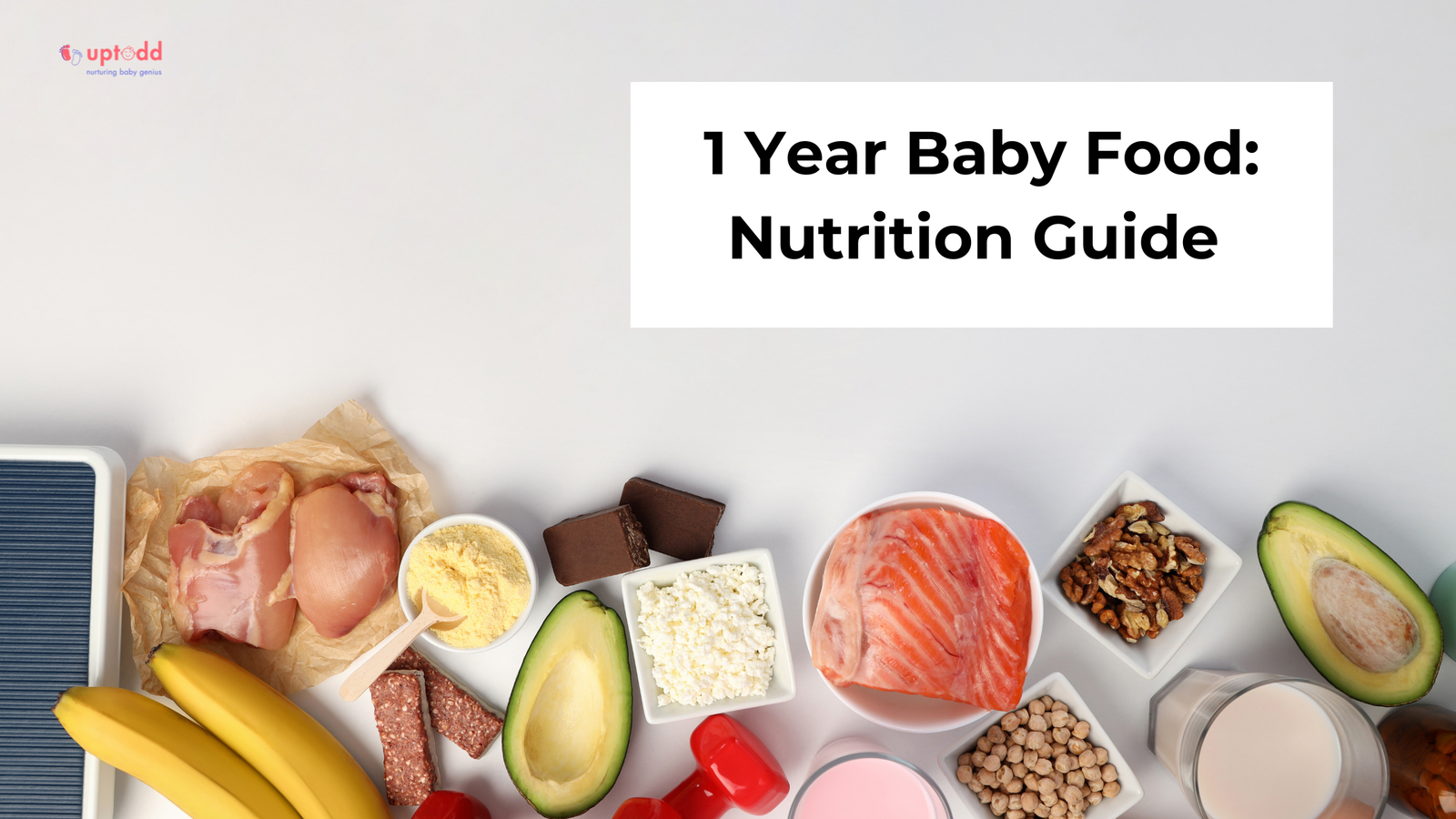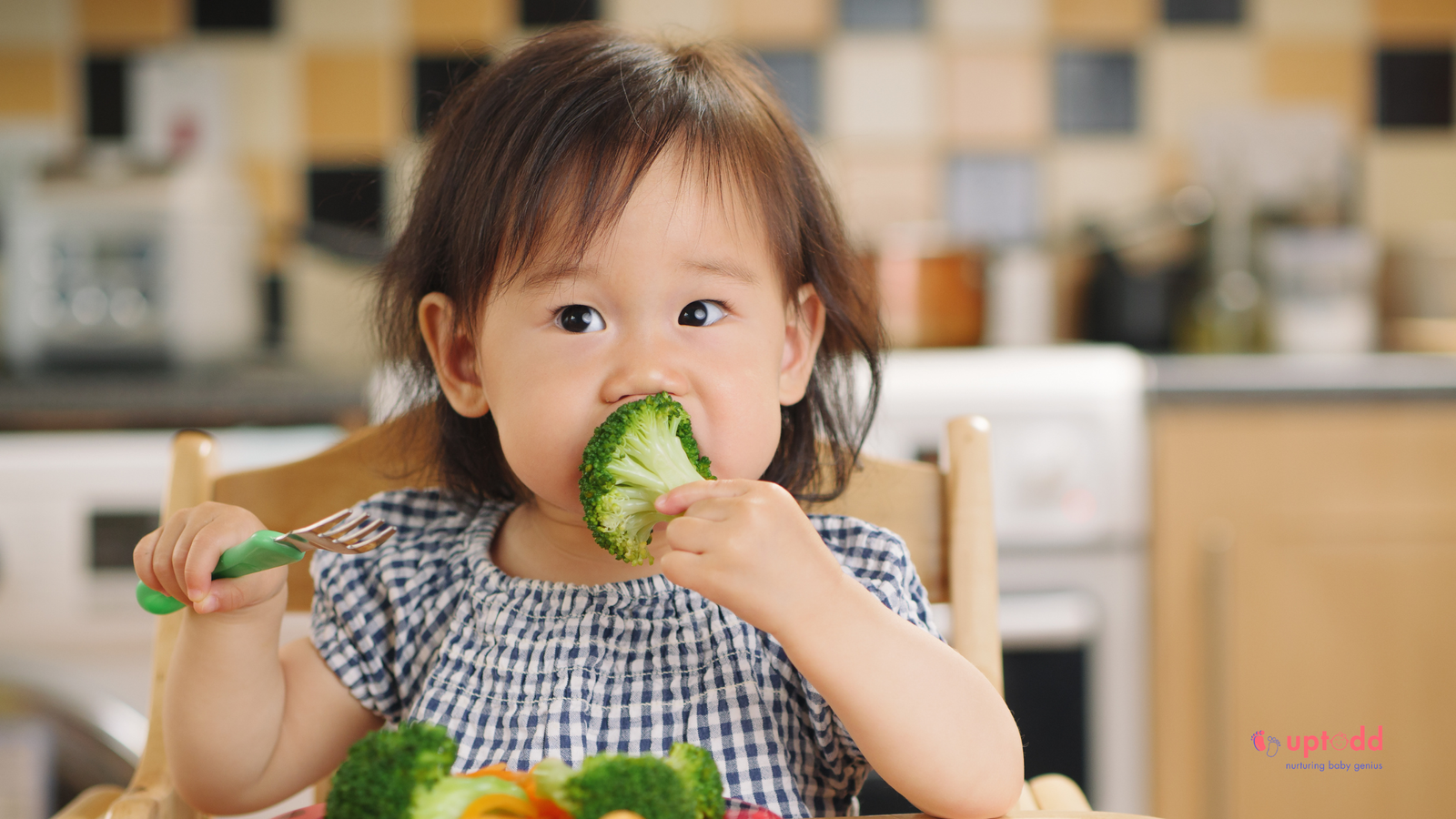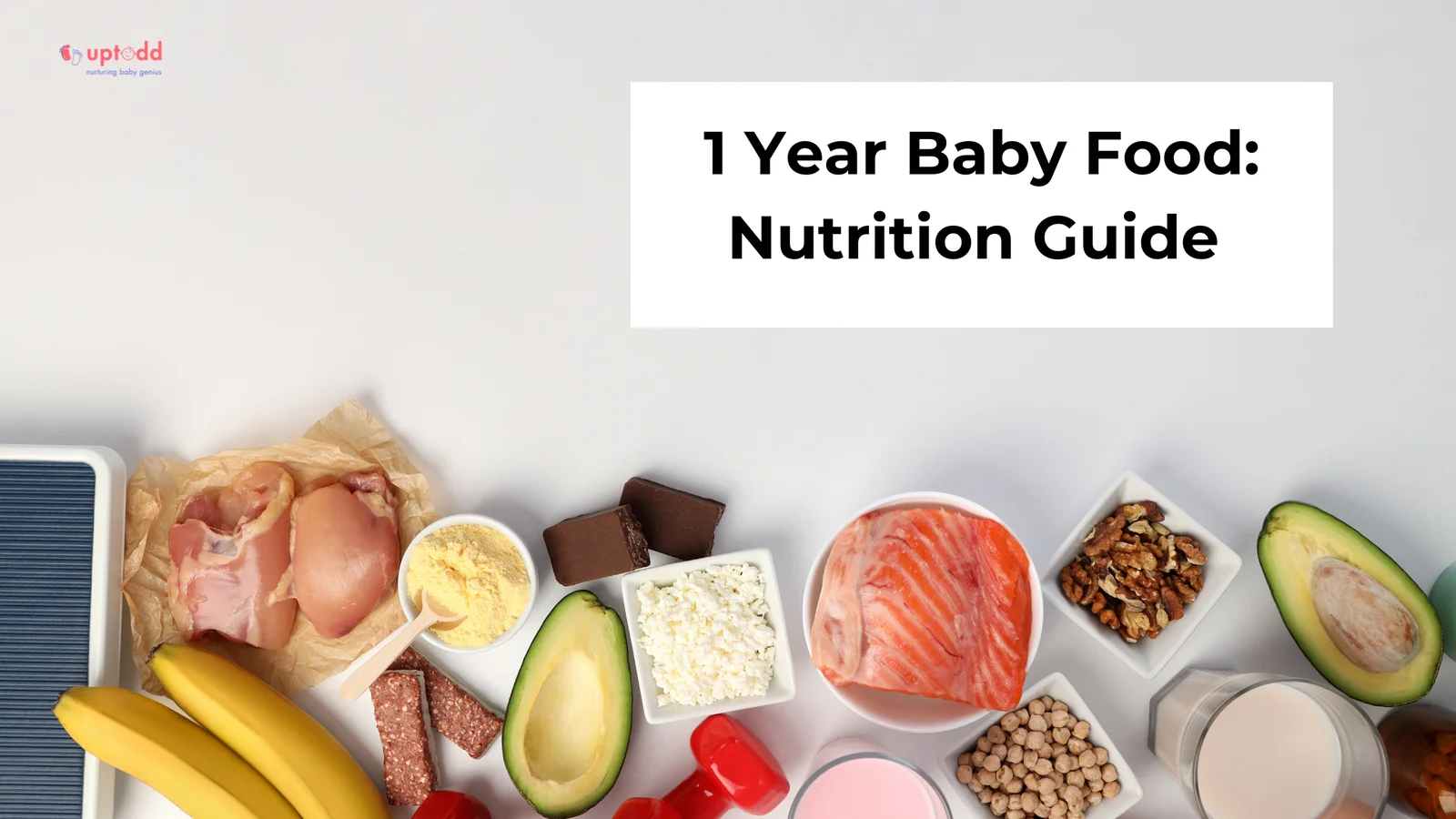
At the age of 1, the requirements of a baby’s body concerning nutrition and even the energy level towards activities begin to change drastically. Feeding babies with either breast milk or formula supports their general wellness and nutrition, but it no longer serves as the major source of food. At this stage, you should practice breast or formula feeding 2-3 times a day, while the rest of the day should focus on providing a nourishing mix of solid foods rich in proteins, calcium, iron, and good fats. We have created 1 Year Baby Food: Nutrition Guide to help you through it.
In this blog we will cover-
- New Foods introduction
- Key Nutrients for Development
- Sample Diet Plan
- Precautions to keep in mind
First of all let us talk about
Free baby food app – Personalised : Download Now
New Foods Introduction – 1 Year baby Food
At the age of 12 months, the baby’s digestive system develops to some extent, making it easier for the baby to eat a wider range of foods than was possible before. Some foods around this stage can be added that were usually skipped in the previous months.
Full-Fat Milk
You can offer whole cow milk to infants without any breast milk or formula supplementation; however, some mothers may still choose to breastfeed during this transition.
Honey
Suitable for use once a child is a year old, honey can be used as a sweetener in foods or in cooking.
Nuts and Seeds
Serve powdered nuts, nut butter or chia and flax seeds for nutritional diversity, thereby preventing any choking risks.
Foods with High Acidic Content
Excessive amounts of tomatoes or citrus foods. This can result in a diaper rash or irritation of the stomach before 1 year of age.
Chocolate or Cocoa
These contain caffeine and sugar, which are harmful to babies below one year of age. You should introduce this in minute quantities only if absolutely necessary (avoid it as much as possible).
Reference- CDC– Foods to avoid before the first birthday

Now let us see
Key Nutrients for Development in 1 year baby food plan
By the end of the first year, the food intake of the baby should be adequately proportioned in order to keep up with the growth rate. The following nutrients are critical:
- Protein for the development of muscles and other tissues.
- Iron helps in the growth of the brain.
- Calcium: For the process of bone mineralization and calcification.
- Vitamins A, C, and E are essential to immune health, as well as the skin.
Fruits and Vegetables : 1 Year baby food
At this stage, parents are encouraged to provide about half of the baby’s food in the form of fruits and vegetables. They are also rich in the essential vitamins and antioxidant content which comes in handy in ensuring the good health of the child.
Grains and Cereals : 1 Year baby food
These are usually provided especially to active toddlers because of their high energy nourishing ability and are rich in carbohydrates. You can add oatmeal, brown rice, or whole grain bread. When it’s nice and warm out, whole grains can be helpful in filling them up during long playful activities because they are very high in fiber and assist in the digestive process.
Proteins: Foundations of development : 1 Year baby food
It is necessary to add different sources of proteins into the diet. You can start with soft scrambled eggs, chicken cut into small pieces, or mashed beans. Such foods provide what is needed for growth and more and also fills the baby up and keeps him or her content.
Reference- 1 year baby diet
Diet Plan
| Meal | Time | Food Option |
| Breastfeed | 7:30 am | Breastmilk/Formula feed session |
| Breakfast | 9 am | -Oats porridge with mashed banana– Vegetable paratha with curd |
| Morning Snack | 11:30 am | – Yogurt with fruit puree– Small pieces of boiled egg |
| Lunch | 1:30 pm | – Dal khichdi with ghee– Soft steamed fish with mashed rice and boiled spinach |
| Afternoon Snack | 4:30pm | – Whole grain crackers with avocado– Small cubes of steamed sweet potato |
| Dinner | 7:30 pm | – Mashed lentils with roti pieces– Plain pasta with a vegetable puree (carrot or pumpkin) |
| Breastfeed | 10 pm | Breastmilk/Formula feed session |
- Change the serving sizes and increase according to your little one’s hunger levels.
- Over the course of a week make sure to include different foods for nutrition’s sake.
- Give water also in little quantities to help with digestion.
Precautions to keep in mind
- Cut food into tiny pieces in order to minimise the risk of choking.
- Check the food’s temperature before serving the meal.
- Provide foods from different sources for a well-balanced diet.
- Do not give any fast foods, such as chips, cookies, or any other processed snacks.
- Stay with your child and supervise them during mealtimes.
- Ensure they chew the food properly before eating.
- Breastfeed or give formula 2 times within a day.
Conclusion
The first birthday is an important milestone for your baby, full of changes and growth, and so do their nutritional requirements. We can help our baby’s healthy growth and development by providing a balanced variety of nutritious foods and following proper feeding guidelines. Keep in mind to speak to your paediatrician and have fun with this wonderful growing and learning stage about food. We hope this 1 Year baby Food plan and guide will be helpfull for you.




Leave a Reply